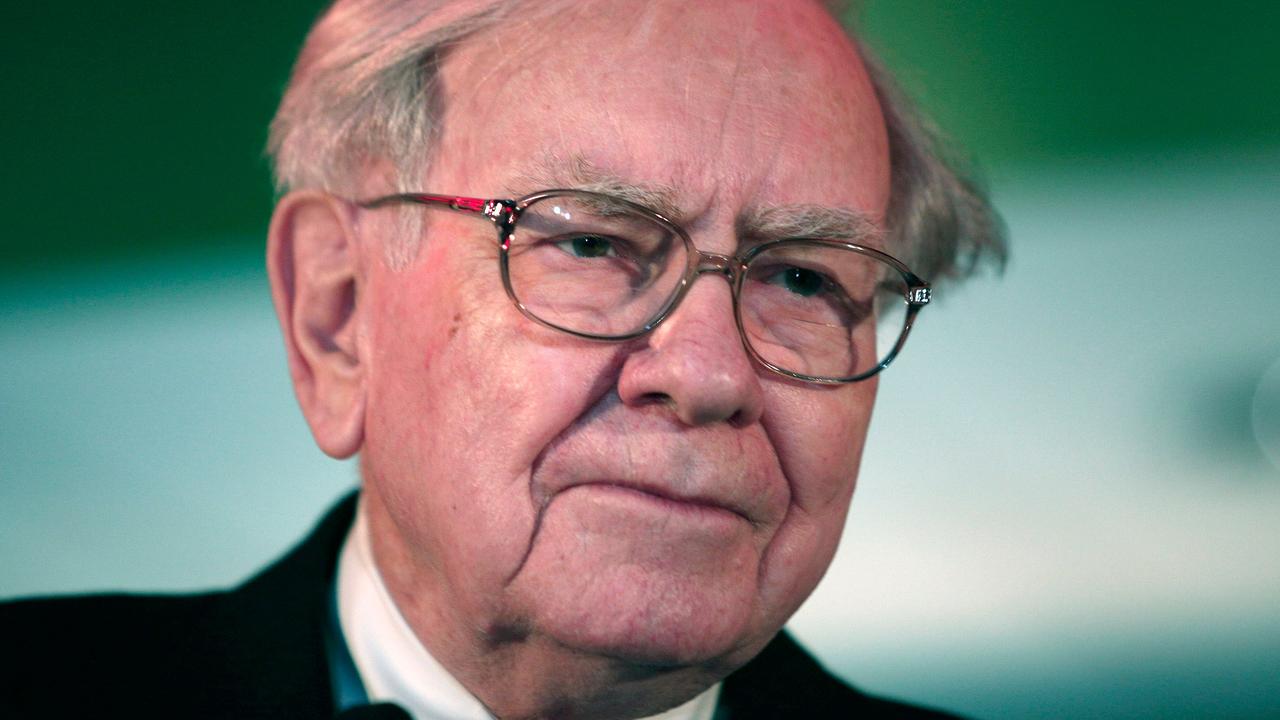Expert reveals smart way of turning $10 into $1.8 million
A money guru has revealed the gobsmackingly simple way you can strike it rich – and it’ll only cost you some spare change.
Investing is the simplest way to guarantee you become seriously wealthy, and the
equation is simple: Good investments ˣ money in ˣ time = results.
The variables are how much money you put in, and how long you do it for, but the results are the same. It’s not a question of whether you’ll get there, it’s just a matter of when.
Consider this example. Starting with $0 saved today, you start saving just $10 each day, and invest the money into an index fund that tracks the long-term Australian sharemarket return of 9.8 per cent.
Over 10 years, this money would grow to be worth $61,598 – not a bad result for the cost of a couple of cups of coffee a day. But keep it going and it gets better. Over the next 10 years, the money would grow to be worth $225,072. Keep going, and over another 10 and 20 years, your money would grow to $658,912 and $1,810,267 respectively.

Again, this is starting with $0 today and investing just $10 daily.
But you have to invest.
Saving money in cash means your money is going backwards after taxes and inflation, which means that cash savings simply will not get you to financial independence. So if you want to actually get ahead, investing is a crucial part of your future.
But if you haven’t got much (or any) experience investing, it can seem complicated and confusing, and it’s common for people to get stuck on the starting line. It often seems like there are so many options and ways you can invest, and you hear conflicting opinions, mixed messages and worry about hidden agendas. This all leads to the fear of making a mistake, which is often paralysing.
The good news is that when you understand investing and where people go wrong, things become simple.
Listening to the gurus
It only takes a few keystrokes to end up bombarded by the 157,000 different “best” ways to invest promoted across the internet. There is so much information out there in this space from people and companies that claim to have cracked the investing code, promising you amazing results delivered quickly with very little risk.
This unfortunately just doesn’t work.
It’s easy to fall into the trap of listening to this noise, made even harder by the fact we really want the results these gurus promise. The difficulty goes up another level when you add in the fact so many of these people showcase the carefully selected wins from their investing history as “evidence” their approach works.
Imagine I introduced you to someone who had correctly picked the outcome of a coin toss 100 times in row. You might think that person was either psychic, or had some special skills that allowed them to somehow figure out the result before it happened.

The reality is, the outcome of a coin toss is entirely random, but it is entirely possible to engineer this outcome. All you need to do is to have enough people guessing on the coin toss at the start. We know there’s a 50/50 probability someone will correctly guess the outcome.
That means if you only have one person guessing on the coin toss, they’re going to strike out pretty quickly. But if you have 10, 100, 1000, or more people guessing the outcome of your coin being tossed, you’ll eventually get to a point where probability dictates that you must have someone who can correctly guess the outcome what seems like a superhuman number of times.
And when it comes to investing, there are hundreds of millions of investors around the world. They’re all choosing different investments and doing slightly different things, but probability dictates there will always be some incredible success stories.
These stories sound so good they must be impossible for someone unless they have some secret knowledge, but in reality they’re completely random.
There’s a now-famous bet made by one of the world’s most successful investors, Warren Buffett. If you haven’t heard of Buffett, he’s worth a Google. Buffett is widely accepted as one of the best investors over the last half a century or so.
Buffett wanted to show that the planet’s top investors couldn’t perform as well as an index fund investment, so he threw out the challenge to the biggest and “best” in the world. He was so confident he put $1 million on the line as a wager.
Buffett’s bet was simple – that the world’s best investors couldn’t beat a simple index fund. If you’re not across what an index fund is, the short version is that instead of picking stocks, an index fund tracks the entire share market.
For the case of this bet, the index fund was up against a hedge fund – an investment fund that pools together a heap of investor money, run by an investment manager or team of investment managers, with the mandate of making as much money as possible.
These funds typically invest in a heap of weird and complex investments, everything from precious metals like gold and silver, buying debt finance and bonds, investing in currencies and foreign exchange and buying up office buildings and infrastructure projects like toll roads, all the way to traditional share investments and pretty much everything in between. They also use complex financial instruments like options, warrants and short selling to further drive investment returns.

In this bet, Buffett went to the biggest hedge funds on earth and made a simple bet – that their best hedge funds with virtually unlimited resources and experience wouldn’t do as well as a basic index fund that blindly tracks the sharemarket without using any smarts or tricky investing strategies.
Buffett won the bet with flying colours, with the hedge fund manager conceding defeat only seven years into the 10-year period of the bet. And Buffett’s results aren’t unique, with S&P Indices versus Active (SPIVA) statistics that track the entire global investing market showing that index funds win more than 80 per cent of the time.
The wrap
You can make investing complicated, but it doesn’t have to be.
A simple approach is the one that delivers the best results, with the least amount of work and the lowest amount of stress.
Keep your investing simple. That way you can focus on where the real value is – how much money you’re putting in, how quickly you’re making this happen and how consistent you are over time.
Disclaimer: The information contained in this article is general in nature and does
not take into account your personal objectives, financial situation or needs.
Therefore, you should consider whether the information is appropriate to your
circumstances before acting on it, and where appropriate, seek professional advice
from a finance professional.
Ben Nash is a finance expert commentator, podcaster, financial adviser and founder of Pivot Wealth, and the author of soon-to-be-released Virgin Millionaire. He runs regular free online money education event which you can book here






